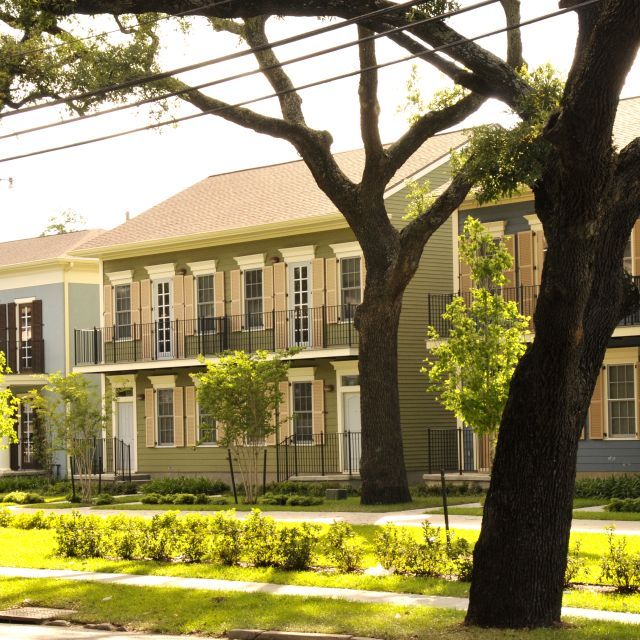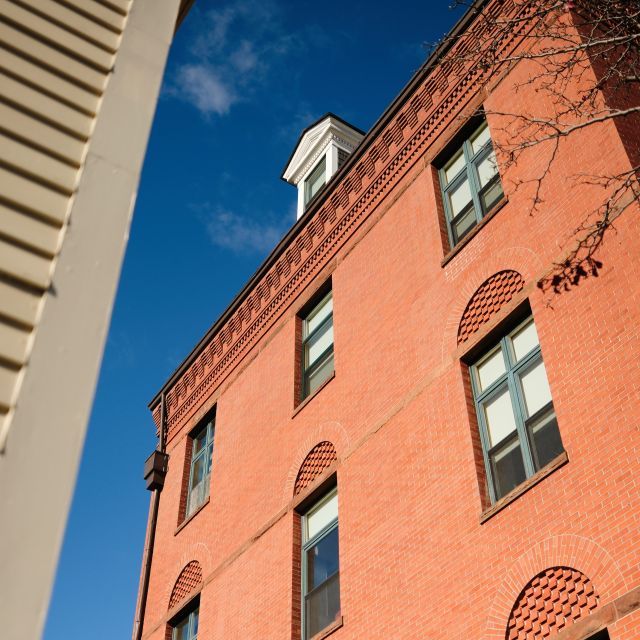This piece is part of our series, Policy Actions for Racial Equity (PARE), which explores the many ways housing policies contribute to racial disparities in our country.
The urgency of addressing climate change continues to be at the forefront of national and international discourse. In 2022, climate-related disasters cost the U.S. over $165 billion; the summer of 2023 was Earth’s hottest on record; and in June, the United Nations 2023 Sustainable Development Goals Report found progress on key climate targets to be weak or insufficient to reach goals for 2030.
While the world watches and calls for swift and immediate action, environmental justice proponents warn that not all policies are created equal, and that some may serve to exacerbate existing racial inequities. This is especially salient in the case of residential building decarbonization. While many homeowners can invest in efficiency upgrades, electric technologies, and renewable energy generation, renters—particularly low-income and BIPOC renters—rarely have the same options. A careful approach to decarbonization must be considered to avoid exacerbating the nation’s affordable housing crisis.
Equitable decarbonization
Decarbonization, the reduction or elimination of greenhouse gas emissions from certain human activities and processes, offers one emerging path toward mitigating the effects of climate change and eliminating harmful air pollutants. As the built environment is estimated to contribute approximately 40% of global greenhouse gas emissions, building decarbonization will go a long way toward reaching climate goals, both in the U.S. and globally.
Decarbonization efforts are rapidly gaining traction in both federal and state policy in the United States. Indeed, the 2022 Inflation Reduction Act (IRA) represents an unprecedented investment in decarbonization by the federal government and is widely regarded as the most significant climate legislation in U.S. history. The $396 billion allocated for lowering consumer energy costs, investing in a clean economy and strengthening climate resilience, also prioritizes equity by including several incentives for projects in underserved communities.
These IRA provisions for “disadvantaged communities that are marginalized, underserved, and overburdened by pollution” are a direct result of the Biden-Harris Administration’s Justice40 Initiative. This initiative mandates that disadvantaged communities receive 40% of the overall benefits of federal investments in areas such as clean energy, energy efficiency, and affordable housing. This is largely in pursuit of the remediation of past (and present) environmental harms, which disproportionately impact communities of color.
The IRA presents an immense opportunity, but delivering those resources where they are most needed is no easy task given systemic barriers that often prevent low-income and communities of color from applying for and adopting green energy opportunities. Potential barriers to equitable implementation include the administrative complexity of program and funding applications, short timelines, and access to information among many others. Simultaneously, these underserved communities experience the highest energy burdens in the US. While the cost of electricity tends to be less volatile than natural gas, leading to more predictable utility costs for consumers, electricity is not always less expensive than fossil fuels. Equity-centered policy and programming are needed to protect residents from increased energy cost burdens and ensure that the benefits of building decarbonization are felt by all, particularly those most vulnerable.
Equity-centered solutions
For years, Enterprise has been a leader in promoting green, healthy, resilient, and equitable affordable housing. From the introduction of Enterprise Green Communities in 2004 to the first Climate Resilience Academy in 2021 and beyond, Enterprise has demonstrated that affordable housing can not only keep pace with innovations in green and resilient building but can pave the way.
The movement away from buildings powered by fossil fuels presents another opportunity to ensure that residents of affordable housing can experience the benefits of a greening economy. This also has implications for racial justice, as Black households make up a disproportionate share of the 10.4 million- people in the U.S. that receive federal rental assistance, following a legacy of discriminatory lending practices and economic policies. As a result, Enterprise’s decarbonization efforts have expanded greatly in the past year to stay abreast of all opportunities to bring affordable housing to the forefront of the building decarbonization movement.
One of several equitable decarbonization initiatives Enterprise’s Building Resilient Futures team has undertaken is to deliver decarbonization resources to affordable housing providers in Colorado. The Colorado Housing and Finance Authority (CHFA) has commissioned Enterprise to build an online electrification hub, intended to help developers, owners, and operators of multifamily affordable housing properties access the information they need to design all-electric new construction or electrify existing buildings at the time of major renovations.
In May 2023, Enterprise hosted focus groups for CHFA to identify the major gaps and barriers to multifamily affordable housing electrification in Colorado. Participants included representatives from state agencies, CDFIs, affordable housing owners, engineering firms, housing authorities, architects, and other partners. Development of the much-anticipated hub has been informed by findings from these focus groups as well as guidance from the hub’s steering committee, which is comprised of over a dozen local experts from seven different state agencies, nonprofits, and engineering firms.
Set to launch by the end of this year, the hub will deliver:
- Technical explainers to help users navigate the complexity of adopting electric technology
- A filterable database of funding, financing, and incentive opportunities from federal, state, and local sources
- A collection of case studies that will provide real-world examples of multifamily affordable housing electrification projects
Enterprise anticipates that this resource will make the path toward building electrification clear for affordable housing providers in Colorado, enabling the delivery of health and economic benefits to low-income and BIPOC residents.
Enterprise is expanding this effort outside of Colorado. The organization is partnering with the Housing Partnership Network (HPN) and Rocky Mountain Institute (RMI) to develop a national multifamily affordable housing decarbonization hub, to be launched in early 2024. Additionally, in partnership with Energy Outreach Colorado and Group14 Engineering, Enterprise has been awarded a contract with the Department of Energy’s Building America program. Through this program, the partners will explore and attempt to solve some of the greatest barriers to retrofitting existing affordable multifamily buildings.
The path forward
Climate mitigation is within reach, and the political will has never been stronger. The IRA has presented a massive opportunity to accelerate the decarbonization of the U.S. economy and advance environmental and racial justice. It won’t, however, happen by accident. The deployment of these funds and programs must center the needs and voices of environmental justice communities, or else threaten to leave them behind.
As we embark on the journey toward a decarbonized future, the partnerships forged by Enterprise and its collaborators represent a promising step forward, highlighting the potential to make lasting environmental and societal impact.
We encourage all who believe in the need to create a just society to read, discuss, and share the PARE blog series as we learn and act to address the impacts of housing policies on racial equity in America. We also invite you to join us in this conversation, by suggesting additional topics and sharing resources for how we can advocate for greater racial equity. If you’d like to offer feedback on our body of work, please reach out to the Public Policy team. You can also check out our blog and subscribe to our daily and bi-weekly policy newsletters for more information on Enterprise’s federal, state, and local policy advocacy and racial equity work.



